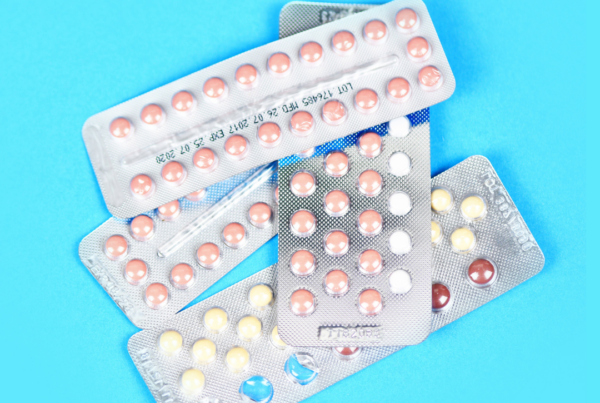
it’s hard to tell your stage
What’s happening now?
Because you don’t get natural periods, it is hard to tell your stage with certainty.
Treatments and conditions that interfere with your natural cycle include-
-
Contraceptives- the pill, implant, ring or IUD
-
Cancer treatments that could be anti-hormonal or other chemotherapies
-
Surgery such as endometrial ablation or hysterectomy (when your ovaries have not been removed)
-
Other medical conditions such as low energy states, thyroid disease and some others
Many Australian women start having hormonal changes in their late 30’s and on average, have their last period at around age 51. So starting with your age gives you some indication of where you might be on your hormonal journey. The next thing to consider is the presence of menopause transition symptoms although any hormonal treatment makes the identification of symptoms unreliable. Perimenopause symptoms will occur if you have had a hysterectomy or ablation and nothing is interfering with your ovarian hormone production.
Advice on your stage and the best way to manage symptoms and future health concerns need to be individualised but let’s see if we can dig a bit deeper.
You have an IUD containing hormones (such as Mirena)
This often means you don’t bleed much and can’t tell what your natural cycle is doing. It’s great for contraception and reducing heavy bleeding which is why many perimenopausal women use it. You may still notice flushes, mood changes and disrupted sleep as the levels of progesterone released into your system from the IUD are not enough to limit your menopausal symptoms (and nor does the IUD include any oestrogen).
You have had surgery to your uterus or ovaries
If you have no uterus or have had an endometrial ablation, you lose your bleeding signals. If you still have ovaries, you will still experience all the other symptoms of hormonal chaos at their predestined time, in a similar fashion to those women with an IUD (see above).
If you don’t have ovaries and they were removed before they started winding down naturally, you will have experienced a sudden onset of menopausal symptoms. It is usually a straightforward matter of replacing your ovarian hormones (oestrogen and progesterone) unless you had them removed for treatment of specific hormone sensitive conditions such as some types of cancer or severe endometriosis.
You are having treatments to reduce your natural oestrogen levels
If you have some conditions such as cancer, it might be necessary to counteract the effect of oestrogen by taking medication that blocks or suppresses your body’s natural hormones. You will experience the abrupt onset of menopause and often have quite bothersome symptoms if you were not already there.
Your treatment options for menopausal symptoms may also be limited to non-hormonal options (including prescription medication) and potentially vaginal oestrogen but make sure you keep well informed about what options are available to you – your life beyond cancer is important too!
What’s up next?
Well this depends on where you are now!
It will be necessary to consult a healthcare professional to help you determine your menopausal stage and suggest the best treatment for symptom relief if you need it but you can read more about treatments in the perimenopause and menopause stage articles.
A note on blood tests
Unfortunately, blood tests are not very helpful as hormones vary from day to day, week to week, cycle to cycle.
If you are taking medications that override your hormones, like the pill, then oestrogen and progesterone may be within normal ranges, FSH low and SHBG high (an effect on the liver of taking oral oestrogen, this is less elevated with the ring or implants).
If you have had your uterus removed or ablated, then at the time of menopause your oestrogen and progesterone will be low and your FSH high!
If you have an IUD, your hormones will be very similar to that of natural perimenopause, which is generally within the normal range for everything.
This information is for general educational purposes only and does not constitute medical advice. Please see your health professional for advice that is personalised to you.
Key take aways
Its is hard to tell your natural menopause stage if you are
1. taking hormone treatments that override your cycle (eg contraceptive pills)
2. have a hormone IUD (Mirena)
3. have had surgery to your uterus which removes your bleeding signals
4. are using treatments that suppress your ovaries.






